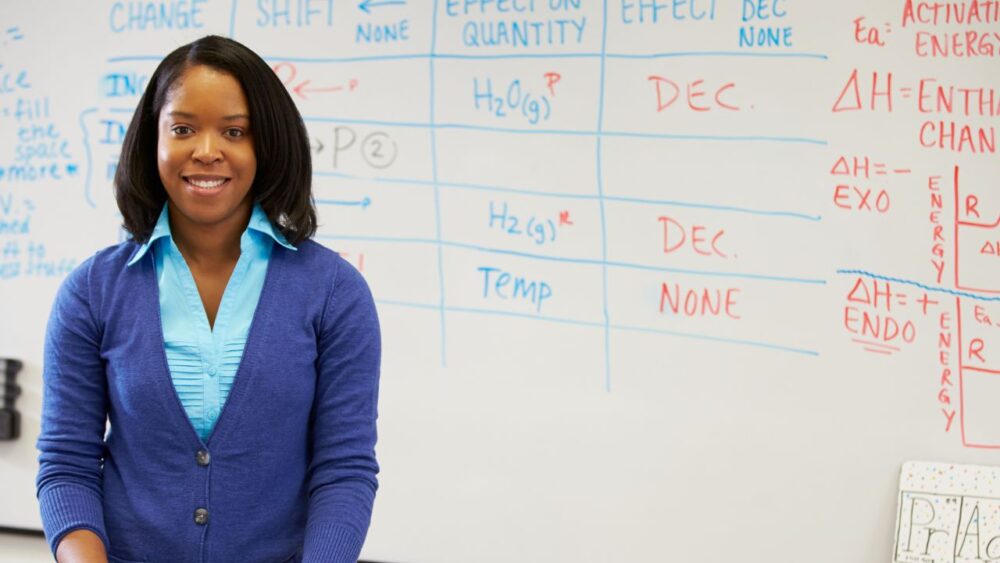Texas lawmakers are considering a bill to restrict uncertified teachers from leading core public school classes, citing significant student learning losses. However, school leaders warn that the move could exacerbate the state’s deepening teacher shortage.
House Bill 2, part of a $7.6 billion school finance package, would ban uncertified teachers from instructing core subjects and require districts to certify K-5 math and reading teachers by fall 2026 and other academic teachers by fall 2027.
The bill, authored by Rep. Brad Buckley (R-Salado), has been sitting in the Senate Education Committee since April 23.
To ease the transition, HB 2 offers financial aid: uncertified teachers in in-school training programs would receive a $10,000 one-time payment, while those in university or alternative certification programs would get $3,000. Fees would be waived for special education and emergent bilingual teachers. Experts call this Texas’ largest investment in teacher preparation.
“Quality preparation takes longer, is harder and it’s more expensive,” said Jean Streepey, chair of the State Board for Educator Certification, per The Texas Tribune. “How do we help teachers at the beginning of their journey to choose something that’s longer, harder and more expensive?”
The push follows a 2015 law allowing “District of Innovation” exemptions from teacher certification requirements. More than 900 districts, including nearly all in North Texas except Tioga ISD, have now secured such waivers.
“Now, what we’ve seen is everyone can demonstrate a shortage,” said Jacob Kirksey, a Texas Tech University researcher, The Texas Tribune reported. “That is what has allowed for the influx of uncertified teachers.”
Last year, 38% of new hires were uncertified, especially in rural areas. Kirksey’s research found that students with uncertified teachers lose four months of reading and three months of math learning, miss more classes, and face school instability due to uncertified teachers’ shorter tenures.
“The state should act urgently on how to address the number of uncertified teachers in classrooms,” said Kate Greer of Commit Partnership, per The Texas Tribune. The bill “rights a wrong that we’ve had in the state for a long time.”
Certification equips teachers with skills like lesson planning and classroom management through 300 hours of coursework and 50 hours of field experience.
“A certified teacher in the classroom means that they have undergone training to lead to their success,” Streepey said, per CBS News Texas. “Research will tell us that certified teachers stay longer, and their students achieve more.”
However, Texas’ teacher shortage, worsened by the COVID-19 pandemic, has forced reliance on uncertified hires. Only 45% of 43,800 new teachers hired for 2024-2025 were certified, per the Texas Education Agency. Low salaries—$9,000 below the national average—being overworked and large classes deter applicants.
“This teacher shortage is getting more and more pronounced,” Heath Morrison, CEO of Teachers of Tomorrow, told The Texas Tribune. “The reality of most school districts across the country is you’re not making a whole lot more money 10 years into your job than you were when you first entered.”
School leaders fear HB 2’s timeline is unrealistic for the state’s 35,000 uncertified teachers. Only one in five uncertified teachers from 2017-2020 got certified within three years.
“The shortages have grown to be so great that I think none of us have a really firm handle on the measures that it’s going to take to turn things around,” said Michael Marder of UT-Austin’s UTeach.
Rural districts like Floydada Collegiate ISD in West Texas face acute challenges.
The restrictions on uncertified teachers “handcuff us,” said Superintendent Gilbert Trevino, who relies on a “Grow Your Own Teacher” program that takes three years — beyond HB 2’s deadline. “We have to recruit locally and grow our own or hire people who have connections or roots in the community.”
In Wylie ISD, uncertified teachers help manage student growth.
“It limits the pot of people that’s already small to a smaller pot,” said trustee Cameron Wiley. “This bill, it’s just another obstacle that we as districts are having to maneuver around.”
Without stronger recruitment, districts may face larger classes or multi-subject teaching loads.
“Things are already hard on our teachers,” Trevino said. “So if you add more to their plate, how likely are they to remain in the profession?”
Certification costs, often $5,000, are a barrier, said Rep. Jeff Leach (R-Plano), whose wife is an uncertified art teacher. The cost may be “not only a hurdle but an impediment for someone who wants to teach and is called and equipped to teach,” explained Leach, per The Texas Tribune.
HB 2 aims to lower these costs, with higher rewards for yearlong teacher residencies.
Parents can check the certification status of their child’s teacher on the Texas Education Agency’s website.


